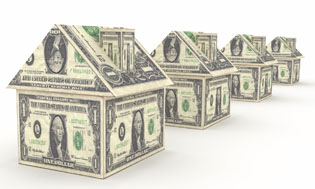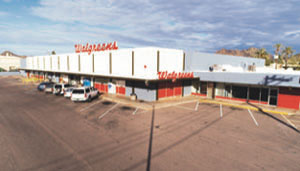Phoenicians have two things to not look forward to come July 1: the rising heat, and the rising property taxes.
Property taxes are calculated by taxing the assessed value of a property, divided by 100, times the tax rate. These taxes are determined primarily by economic factors. A stronger housing market means higher property values.
Primary tax levies are used for the maintenance and operation of school districts, cities, community college districts and counties. Secondary tax levies consist of bonds, budget overrides, and special districts such as fire, flood control and other limited purpose districts.
The Maricopa County Community College District (MCCCD) board in late May voted to increase its primary property tax rate by 3.92 percent, expected to bring in approximately $18.6 million in the next fiscal year. The increase will cause the tax rate on a home in the district’s vast boundaries to go up by about $4.41 per $100 of assessed valuation.
Last year, the MCCCD also set a property tax increase at a rate of 1.3 percent, expected to bring in nearly $6 million.
Maricopa County itself is also getting in on the action. The Maricopa County Board of Supervisors, in setting its expected $2.57 billion budget for fiscal year 2020, indicated it anticipates receiving more money overall from its primary and secondary property taxes, even though board members state they are not actually changing the rates.
The Maricopa County Board of Supervisors, which governs the Flood Control, Library, and Stadium districts, does not control property values. The board only sets the tax rate, which will be the same in fiscal year 2020 as it was in fiscal year 2018 and 2019.
Nonetheless, residents can expect to pay about $140.09 (per $100,000 of valuation) in primary property taxes to the county, as well as $17.92 in secondary property taxes for the Flood Control District, and $5.56 to the Library District. The Maricopa County Board of Supervisors will meet on Aug. 19 to vote on the final tax levy proposal.
Similarly, the city of Phoenix also says its anticipated primary property tax levy will go up, even though officials say the rate itself is going down—again.
According to a statement from the city, “The city of Phoenix’s proposed primary property tax rate for 2019-20 of $1.3055 per $100 of assessed valuation is lower than its 2018-19 rate of $1.3163.” The fiscal year prior (2017-18), it was $1.3359 per $100 of assessed valuation.
However, the city expects that overall increases in assessed valuation will result in a 3-percent increase in primary property taxes for the average city of Phoenix property owner. The previous fiscal year, the city anticipated a 2-percent increase.
So the rate itself is dropping from about $1.32 to approximately $1.30 per $100 of assessed valuation, but the assessed valuations of homes in Phoenix are expected to rise, which will ultimately bring in more money than last year, despite the nominal drop in the rate.
The city’s secondary property tax rate for 2019-20 will remain constant for the third year, at $0.8241 per $100 of assessed valuation. Secondary property taxes collected by a city pay the bonded debt service for facilities like libraries, police and fire stations, storm drains and parks.
The college district and city of Phoenix tax rate changes go into effect on July 1. The county tax rates will be reflected on property tax bills when they go out in the fall.










































